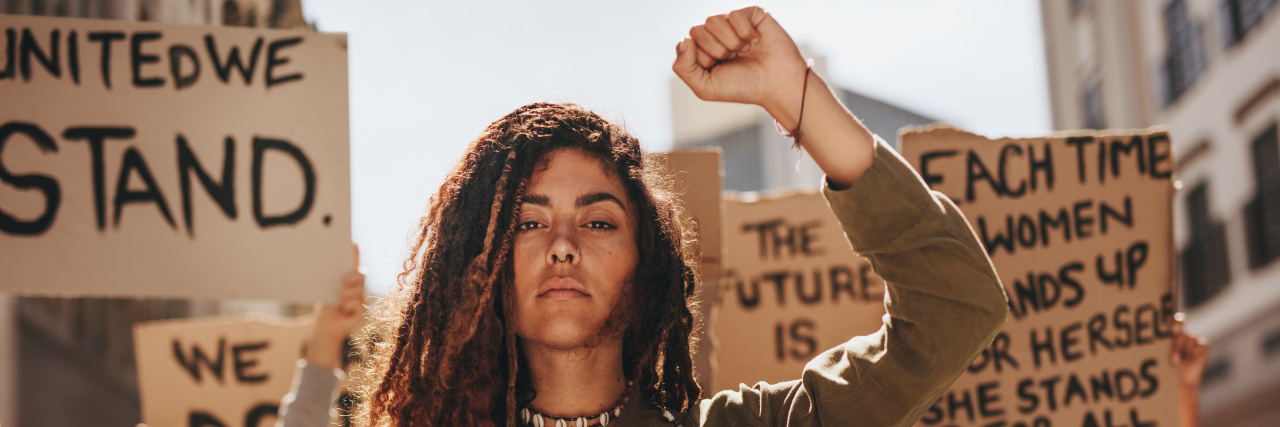We Must Include Disabled People in the Fight for Reproductive Rights
On Saturday, I found myself outside of City Hall in NYC with hundreds of others rallying for reproductive rights. We were there to protest Texas’ very polarizing abortion law, which severely limits a woman’s access to own her healthcare. The law makes it nearly impossible to terminate a pregnancy after six weeks, no matter the circumstance, and provides a $10k bounty to those who successfully sue the woman, the doctor, and/or those assisting her; the law went into effect 30 days ago. Other states have similar laws just waiting to be enacted.
I joined this Women’s March, my first, because the agenda was ultra-clear: protest the Texas law, prevent similar laws from being enacted in other states, and show support for why freedom of choice matters. For two hours that afternoon, I enthusiastically listened and repeated the chants as countless speakers expressed different viewpoints on reproductive justice and rights: young and old, politicians and nonprofit leaders, LGBTQ+, different races, and genders all represented. I photographed countless posters with language of support for reproductive rights and those pleading for women to be able to control their own bodies. It was powerful.
However, as the speeches ended and the large crowd moved to finally march, I felt a waxing sense of disconnection. As a woman, I felt included. As a woman with a disability, I did not.
Not once, during the long speeches filled with repeated refrains of “Abortions Rights Are … (fill in the blank for the group),” did I hear shouts on why abortion justice and rights matter to those with disabilities. Those with visible differences (like mine) and invisible mental health and neurocognitive differences were nowhere on the agenda, in the chants, or on posterboards. Instead, those with “otherness and disability” were a very definitive “etc.” during the shout-outs of “Race, gender, sexual orientation, etc.” As I have shared in previous articles and in talks, on my travels through diversity and inclusion, I have often felt left out, missing from the agenda, and not included.
I woke up this morning upset and unnerved, questioning: Why wasn’t disability covered? Is it even necessary to recognize those with disabilities specifically in these conversations? The answer to the second question is a resounding yes. Some sobering statistics from NOW, all of which can lead to potentially having to make a reproductive choice:
- Women with disabilities are three times as likely to be physically abused or assaulted.
- As many as 40% of women with disabilities experience sexual assault or physical violence.
- People with intellectual disabilities are victims of sexual assault at rates more than seven times than those without disabilities.
And those stats and others are cited by multiple sources. Google them, please. It’s horrifying and eye-opening.
Not hearing even one speaker on Saturday mention the connection between disability and reproductive justice was beyond disturbing, is beyond disturbing. We need to include people with disabilities in the conversation on abortion rights and justice in meaningful ways. This is our health too.
Also, it’s time to expand diversity to be more inclusive. People with disabilities need to be part of the diversity conversation in more meaningful ways as well. I am planning to contact the organizers to share my disappointment and solutions on disability inclusion, and I vow that I will be on the stage standing with my people with disabilities next year. Abortion Rights Are Disability Rights!
Join me in expanding diversity to include those with visible and invisible differences.
Postscript: Wherever you land personally and politically with your opinions on reproductive health and justice, my main point here is to please include people with disabilities in the conversation.
This story originally appeared on Thrive Global.
Getty image by Jacob Lund.

